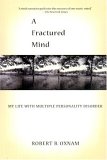Summary | Excerpt | Reviews | Beyond the Book | Readalikes | Genres & Themes | Author Bio

Critics' Opinion:
Readers' Opinion:
First Published:
Oct 2005, 304 pages
Paperback:
Oct 2006, 304 pages
 Book Reviewed by:
Book Reviewed by:
BookBrowse Review Team
Buy This Book
So, even before the term was invented, I was a nerd of the first order. At Williams College in the early 1960s, my secret system flourished, but, of course, it demanded huge amounts of time. My Williams day was nothing but classes, studying in a hidden carrel deep in the library, and occasional breaks for meals and a squash game for exercise. Social life was nonexistent; I had only a couple of dates in high school, and three dates in my first two years of college.
Late one night, a fellow student barged through my closed door, saw my meticulously typed notes, and observed, "Ox, you're one fucking obsessed nut." My immediate reaction was not anger — who could deny that he was right? But I felt guilty at being discovered in a clandestine act.
In my mind, my approach was a secret trick, a labor-intensive device to beat the academic system. For most of my life, I assumed that my academic achievements came solely from obsessive work, not from intellectual ability. I viewed myself as a successful fraud, a driven but "stupid" fellow, basking in grade-measured success, while keeping his memory-driven system top secret. Throughout life, I have been uncomfortable with praise because I feel it is not deserved.
In spite of my low intellectual self-image, Williams College prompted a newfound joy in the rich array of courses and readings. Williams was a teaching college par excellence and many of the professors in the English and History departments were brilliant. It was at Williams, under such great minds as Bob Waite, Dudley Bahlman, Russ Bostert, and Chris Breiseth, that I learned to think analytically and to write clearly. New worlds opened as I read Plato and Kant, Tillich and Éliade, Conrad and Sartre, and I started participating in class discussions and preparing less methodical and more imaginative papers.
From Williams I went directly to graduate school at Yale University in Asian studies. I suppose I was fated to keep plodding on the academic treadmill, but why pick Asian studies? Unfortunately, Williams College, like most liberal arts colleges of that day, offered little about countries across the Pacific, with the exception of Fred Greene's informative course on Asian politics. But I did read three nonassigned books about China and Japan. My only childhood exposure was hearing a few tales and seeing a few art objects brought back by my grandfather from trips to Japan, China, and India.
I just had a hunch that China, with its great history and remarkable cultural inheritance, might be a more positive force someday. That was a pretty radical thought at the time; most people still saw a malevolent "Red China" with harsh images from the Korean War and the Cold War. Oh yes, Dad also urged me to consider international studies. He told me a popular joke: "What's the difference between an optimist and a pessimist?" Answer: "Optimists study Russian. Pessimists study Chinese." My optimistic father was already learning Russian, so I — not a pessimist, but perhaps a more cautious optimist — picked Chinese.
The clincher was money: I got a terrific financial aid package from Yale Asian studies courtesy of the National Defense Education Act (NDEA), supporting studies about "critical countries" (that often meant enemy countries like China and the Soviet Union). By the way, it was the same "studying the enemy" argument that prevailed with my draft board to give me a student deferment during the Vietnam War. I will never forget the gruff chairman of the draft board asking me "one final question to see if you're a real Asia expert" before granting the deferment: "Was it chow mein or chop suey that was invented in China?" (I'm not kidding!) My correct answer — "Chow mein…because chop suey was created in America" — kept me out of the Vietnam conflict. I blessed my nerdish memory for trivia that fateful day.
My Yale experience from 1964 to 1969 was an eye-opening voyage into Chinese and Asian art, history, politics, and economics at a time when few graduate students were attracted to the field. The Chinese program was spearheaded by two exceptional scholars, Arthur and Mary Wright (Mary was a pioneer in modern Chinese history and the first female full professor at Yale). The Chinese-language department, created to train air-force officers in the Second World War, had a great array of linguists. My first Chinese teacher, the talented Daisy Kwoh, eventually became my assistant at the Asia Society and has been a close friend ever since. It was Daisy Kwoh who gave me a lovely Chinese name — An Xilong — rich in meaning and historical allusion, always producing knowing nods from prominent Chinese.
Excerpted from A FRACTURED MIND by Robert B. Oxnam. Copyright 2005 Robert B. Oxnam. All rights reserved. Published by Hyperion.





The House on Biscayne Bay
by Chanel Cleeton
As death stalks a gothic mansion in Miami, the lives of two women intertwine as the past and present collide.

The Flower Sisters
by Michelle Collins Anderson
From the new Fannie Flagg of the Ozarks, a richly-woven story of family, forgiveness, and reinvention.

The Funeral Cryer by Wenyan Lu
Debut novelist Wenyan Lu brings us this witty yet profound story about one woman's midlife reawakening in contemporary rural China.
Your guide toexceptional books
BookBrowse seeks out and recommends the best in contemporary fiction and nonfiction—books that not only engage and entertain but also deepen our understanding of ourselves and the world around us.